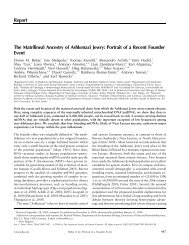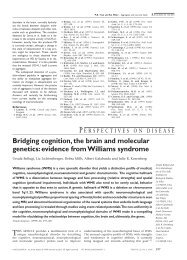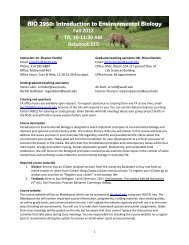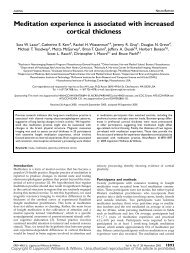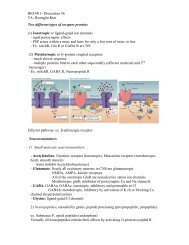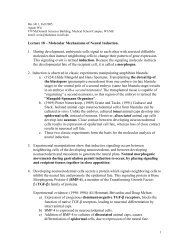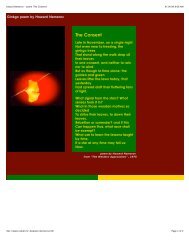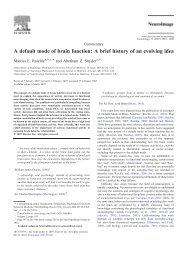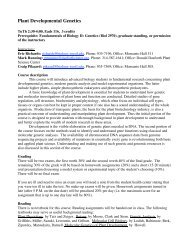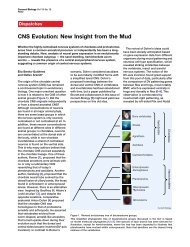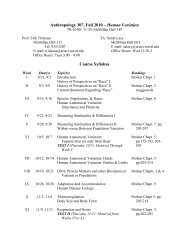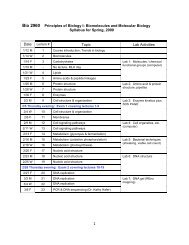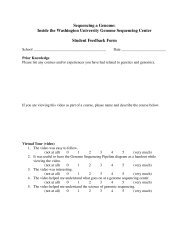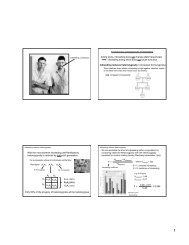MIDTERM EXAM Introduction to Neuroscience â Bio 3411 1999 1 ...
MIDTERM EXAM Introduction to Neuroscience â Bio 3411 1999 1 ...
MIDTERM EXAM Introduction to Neuroscience â Bio 3411 1999 1 ...
You also want an ePaper? Increase the reach of your titles
YUMPU automatically turns print PDFs into web optimized ePapers that Google loves.
2<br />
Midterm Exam<br />
<strong>Introduction</strong> <strong>to</strong> <strong>Neuroscience</strong> – <strong>Bio</strong> <strong>3411</strong> (<strong>1999</strong>)<br />
Name: _____________________________________<br />
3) Which of the following is unimportant in establishing the membrane resting potential<br />
a. The bulk concentrations of all impermeant ions.<br />
b. The equilibrium potential for all permeable ions.<br />
c. The intracellular concentration of potassium ion.<br />
d. Membrane leak channels.<br />
e. The sodium-potassium ATPase.<br />
f. All of the above.<br />
4) Using patch clamp technique:<br />
a. Different channels can be distinguished according <strong>to</strong> their single channel<br />
conductance.<br />
b. Different channels can be distinguished according <strong>to</strong> their mean open time.<br />
c. Different channels can be distinguished according <strong>to</strong> their inactivation properties.<br />
d. Different channels can be distinguished according <strong>to</strong> their reversal potentials.<br />
e. All of the above.<br />
f. A, B & C only<br />
5) The condition of Hyperkalemic Periodic Paralysis is a genetic disease caused by a<br />
mutation in a voltage-gated sodium channel. However, it resembles “Hyperkalemia” a<br />
condition where the bulk concentration of extracellular potassium is <strong>to</strong>o high. Which of the<br />
following is true:<br />
1. The membrane resting potential in affected cells is <strong>to</strong>o positive.<br />
2. The condition could result from some sodium channels open at resting potentials.<br />
3. A similar condition could result from a mutation that affects leak (K+ selective) channels.<br />
4. All of the above.<br />
5. 1 & 2 above.<br />
6) Long QT syndrome shows a pattern of dominant inheritance because:<br />
A. The mutant potassium channel gene suppresses the genetic expression of the cardiac sodium<br />
channel.<br />
B. Mutant potassium channel subunits form heteromultimers with wild-type subunits.<br />
C. The mutant potassium channel gene shows dominant epistasis.<br />
D. The mutant potassium channel shortens the duration of the cardiac action potential.<br />
E. None of the above.



